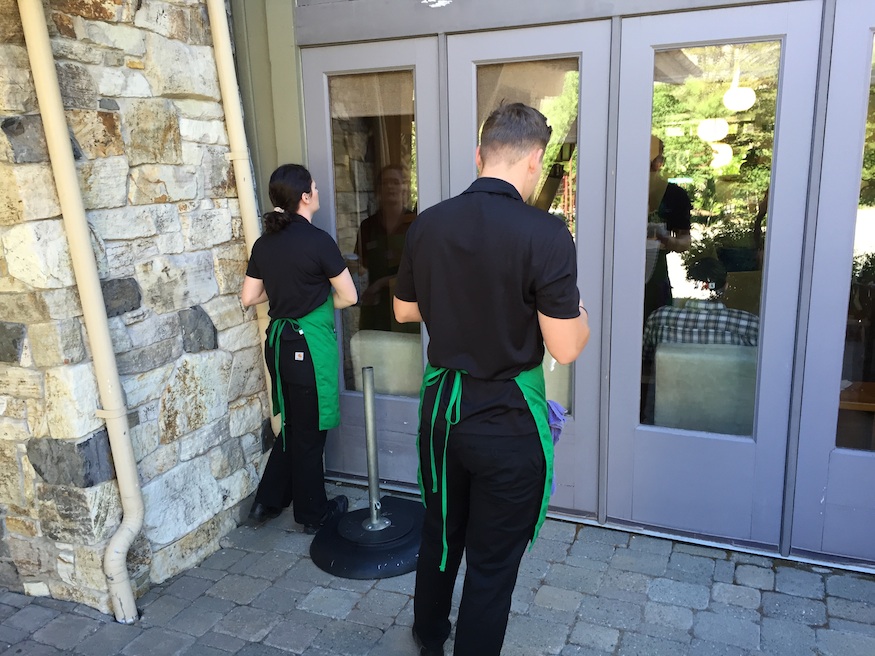
Picture the Starbucks café at Squaw Valley, California, on a gorgeous summer morning near beautiful Lake Tahoe. It’s Sunday, 9 a.m., and everyone wants their latte or frappuccino. But the two Starbucks employees in the photo above continue blithely washing windows, despite the influx of customers forming into a steadily growing line stretching almost out the door.
Have the workers lost their minds? Nope. If you believe in Taylorism — and many companies still do today — workers are mindless cogs, and the sooner we relieve them of initiative and spontaneity, the faster their assigned tasks get done.
Don’t get me wrong. Frederick Winslow Taylor had some groundbreaking ideas in the development of scientific management theory in the late 19th century, including the then-novel concept of work breaks, but at heart his approach to work is reductive and dehumanizing. We all know a cog when we see one — there are millions across America — working in Staples, Best Buy, CVS pharmacies, and countless big-box stores, institutions high on efficiency, light on humanity, and utterly dense when it comes to customer service. These soulless establishments often make you feel like turning on your heels and marching straight out of the store without buying anything because the experience — and service — is so abysmal.
Starbucks has been widely heralded for pioneering the efficient American café experience and, by and large, its service is superior to that of box stores. But with 21,000 outlets, Starbucks is increasingly evolving into the McDonald’s of fast coffee and seems doomed to suffer the fate of its antiquated, fast-food cousin, increasingly vulnerable to upstart competitors.
My experience at the Squaw Valley Starbucks has become all too common. At Starbucks, workers routinely turn their backs on customers: stocking shelves, washing windows, doing rote, non-urgent busywork, and generally ignoring morning folks who want their coffee right now. It makes sense. These tens of thousands of workers feel little sense of connection or mission.
Which brings us to the present and future. Millennials, Gen Xers, Baby Boomers, and millions of other Americans, seek a bigger, more personal customer experience. They want a little humanity to stir in their coffee, a side of community and connection with their burger, and they are looking for it in slow cafés, like Philz, where quality, handcrafted coffee, and a quirky, non-generic experience draws crowds. Customers are also finding such satisfaction in the thousands of Apple stores around the globe, where the staff have great latitude to tackle problems on the spot, take initiative, and appear to genuinely enjoy their work.
The trouble with Taylorism is that, taken to its extreme, it leaves scant room for individual initiative, let alone innovation. It outlaws spontaneity, obviating the wisdom and flexibility of a take-charge individual, who knows that at 9 a.m., people want coffee fast — and don’t care a whit whether the windows are perfectly clear.


